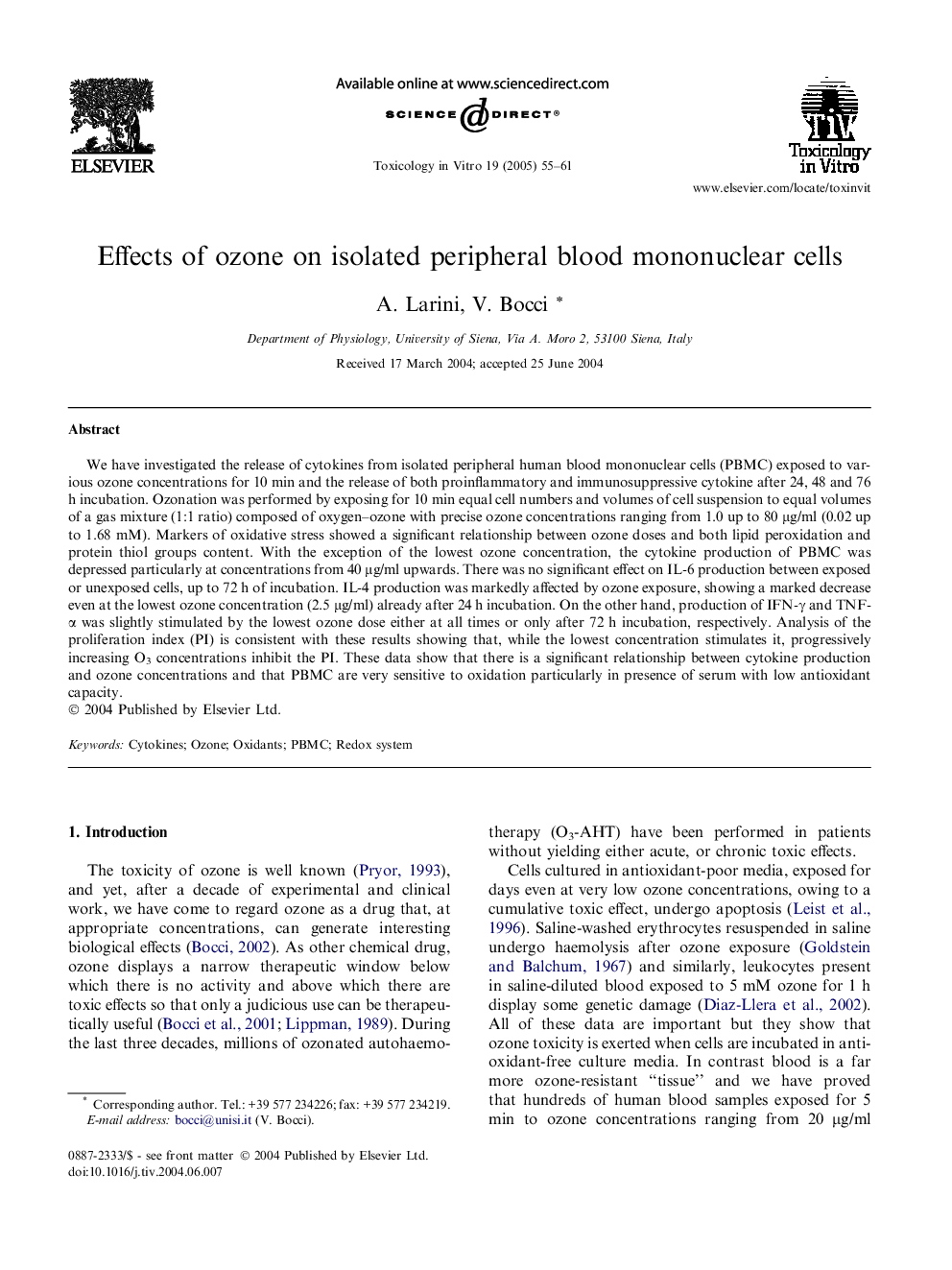| Article ID | Journal | Published Year | Pages | File Type |
|---|---|---|---|---|
| 9038339 | Toxicology in Vitro | 2005 | 7 Pages |
Abstract
We have investigated the release of cytokines from isolated peripheral human blood mononuclear cells (PBMC) exposed to various ozone concentrations for 10 min and the release of both proinflammatory and immunosuppressive cytokine after 24, 48 and 76 h incubation. Ozonation was performed by exposing for 10 min equal cell numbers and volumes of cell suspension to equal volumes of a gas mixture (1:1 ratio) composed of oxygen-ozone with precise ozone concentrations ranging from 1.0 up to 80 μg/ml (0.02 up to 1.68 mM). Markers of oxidative stress showed a significant relationship between ozone doses and both lipid peroxidation and protein thiol groups content. With the exception of the lowest ozone concentration, the cytokine production of PBMC was depressed particularly at concentrations from 40 μg/ml upwards. There was no significant effect on IL-6 production between exposed or unexposed cells, up to 72 h of incubation. IL-4 production was markedly affected by ozone exposure, showing a marked decrease even at the lowest ozone concentration (2.5 μg/ml) already after 24 h incubation. On the other hand, production of IFN-γ and TNF-α was slightly stimulated by the lowest ozone dose either at all times or only after 72 h incubation, respectively. Analysis of the proliferation index (PI) is consistent with these results showing that, while the lowest concentration stimulates it, progressively increasing O3 concentrations inhibit the PI. These data show that there is a significant relationship between cytokine production and ozone concentrations and that PBMC are very sensitive to oxidation particularly in presence of serum with low antioxidant capacity.
Related Topics
Life Sciences
Environmental Science
Health, Toxicology and Mutagenesis
Authors
A. Larini, V. Bocci,
